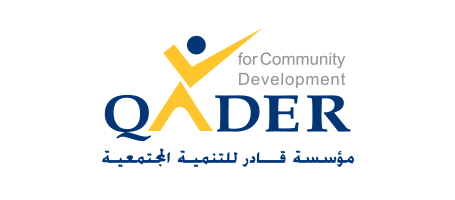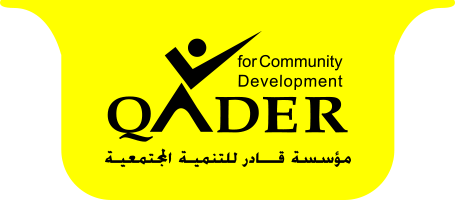QADER Participates in Research Presentation on the Right to Health in Times of War at the "Right to Health" Conference – Ramallah/Gaza
QADER for Community Development presented a research paper titled "The Right to Health in Times of War" at the "Right to Health" conference, organized by the Social and Economic Policies Monitor (Al-Marsad) in Ramallah and the Palestinian Center for Human Rights in Gaza via videoconference. The paper was delivered by QADER’s General Director, Mrs. Lana Bandak, who discussed the impact of wars on civilians, particularly persons with disabilities, highlighting the psychological, social, and economic aftermath that severely affects their lives.
Mrs. Bandak emphasized the harsh realities faced by persons with disabilities in Palestine, including injuries sustained during the two uprisings and the plight of prisoners in Israeli jails. She noted how the occupation’s excessive use of force and oppressive measures have led to a wide range of disabilities and dire health conditions. The paper included statistics and indicators demonstrating the urgent need to improve healthcare services for persons with disabilities, particularly in Gaza and the West Bank, where there is a high demand for assistive devices and services, including prosthetics and advanced equipment for severe disabilities.
The research analyzed the challenges faced by injured Palestinians who acquired disabilities due to repeated Israeli violations. These challenges are like those faced by persons with disabilities from other causes, such as limited legislative enforcement of the Persons with Disabilities Law, weak oversight mechanisms, and inadequate penalties. Other barriers include limited access to services, transportation issues in some areas of the West Bank and Gaza, and a lack of awareness and professionalism among some service providers. Furthermore, political will and budgetary constraints exacerbate the challenges, particularly regarding services for severe disabilities that many individuals are unable to access.
The session concluded with several key recommendations, including the need to harmonize national legislation with the UN Convention on the Rights of Persons with Disabilities, revise disability classification frameworks, allocate sufficient budgets to meet medical and health needs, and establish systems for crisis response. Additionally, the report emphasized the importance of developing regulations to enable the Palestinian Ministry of Health to monitor and regulate healthcare services, aiming to reduce medical errors and eliminate discrimination and violations during healthcare provision.
The conference aimed to deepen understanding of the right to health through discussions involving Palestinian and international institutions and experts in the field. It addressed pressing issues in the Palestinian healthcare sector, such as policies to ensure the right to health, refugee health services, and the impact of budget cuts on healthcare and medication availability. The event also highlighted the severe crisis in Gaza’s healthcare sector, exacerbated by significant reductions in medical referrals for patients. Participants called for health services to be depoliticized and protected from financial cuts.
Key recommendations from the conference included advocating for increased government allocations to the health sector, integrating the right to health into institutional policies and programs, strengthening international solidarity in health, documenting Israeli violations, and developing a national accountability system for medical errors. Additionally, participants emphasized the need for a comprehensive health insurance law to ensure equitable access to healthcare for all Palestinians.

